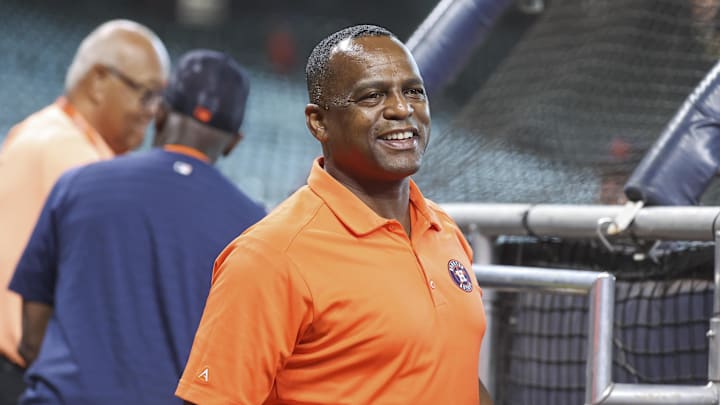Of all of the departures that the Houston Astros endured this offseason, the most controversial among the fanbase was the Kyle Tucker. Alex Bregman was getting older and most fans expected both he and and Ryan Pressly to exit this offseason. But the Tucker trade saw Houston lose a talented, young player; one that many thought would be a part of the Astros' core for years to come.
Of course, that was the theory. As it turns out, trying to sign players who are looking at potential $400 million paydays is difficult, and the Astros had little luck getting the ball rolling on an extension with Tucker going back two offseasons now.
Recently, Astros General Manager Dana Brown went on the Foul Territory podcast and was asked about the decision to trade Tucker to the Chicago Cubs. To the surprise of absolutely no one, the odds of signing an extension played a massive role in Brown's decision to trade him.
Astros GM Dana Brown said the front office felt like trading Kyle Tucker was best for the organization. pic.twitter.com/fw0XaEM3Aa
— Foul Territory (@FoulTerritoryTV) March 5, 2025
Stalled Astros-Kyle Tucker contract extension talks all but ended his time in Houston
Houston certainly had other reason to trade Tucker this offseason. The organization needed more payroll space to make some necessary moves this winter, and Tucker was going to get a pretty penny during his last year of arbitration. The Astros also needed to beef up the club's minor league pipeline, especially if Tucker was leaving. It seems as though that mission was accomplished with the addition of Cam Smith.
However, Brown laid things out on the record and it is abundantly clear that extension talks with Tucker were the primary driver of this offseason's trade. The Astros GM talked about how they'd consistently have meetings where they'd talk about the odds of extending a specific player, how much it was going to cost, and how such an investment fits in the team's long-term plans. The Astros clearly knew that Tucker was going to be extremely an expensive player to keep, and (given the team's financial constraints) they weren't going to be able to do so.
These are the sorts of moves that are hard to evaluate for a number of years. How much money Tucker receives on the open market this winter and how he performs over the course of deal is going to take a while to ascertain. Then there's the matter of how well both Smith and Isaac Paredes perform over the next few seasons.
